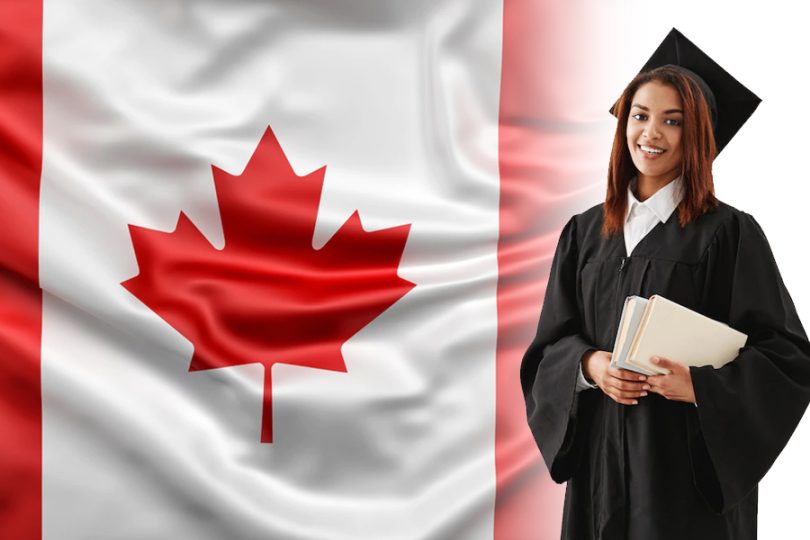
North America includes Canada. It is the second-largest country in terms of total area and has the longest coastline in the globe. Its ten provinces and three territories stretch from the Atlantic to the Pacific and northward into the Arctic Ocean. The Study in Canada Scholarships offer short-term exchange opportunities for study or research at the college, undergraduate, and graduate levels in Canadian post-secondary institutions to students from post-secondary institutions located in the new eligible countries/territories.
The scholarships listed below are available to international students coming to Canada.
The participation of the Government of Canada Scholarships in significant international scholarship competitions is the responsibility of Global Affairs Canada. The goal of government is to promote intercultural understanding, create global citizens, assist in the development of leaders, and advance the progress of nations.
The body in charge of overseeing Canada’s federal government is known as the Government of Canada. Under a constitutional monarchy, the Crown serves as the only agency, acting in three different capacities: as the executive branch’s “Crown in Council,” the legislative branch’s “Crown in Parliament,” and the judiciary branch’s “Crown on the Bench.”
Nonetheless, the Crown’s authority is exercised by three bodies: the Privy Council (traditionally the Cabinet), the Canadian Parliament, and the judicial system. The term “Government of Canada” can be used to refer to either the entire grouping of the three institutions or, more specifically, to the executive, which is made up of the federal civil service (which the Cabinet directs) and the Crown ministers, who collectively go by the name “Her Majesty’s Government.”
The current system was established as a federal constitutional monarchy at Confederation by the Constitution Act of 1867. The cornerstone or most essential tenet of Canada’s Westminster-style parliamentary democracy is the Crown.
The executive, legislative, and judicial branches of the Canadian government are organized under the Crown. Queen Elizabeth II is the head of state and is directly represented by the governor-general, who is presently Mary Simon. Justin Trudeau is the current prime minister of Canada. A prime minister is the leader of a government that the Crown invites to form after winning the support of the House of Commons, which is typically achieved by electing enough members of a single political party to win a majority of seats in Parliament, forming a governing party.
Several aspects of government, including written statutes in addition to court decisions and unwritten customs built over centuries, are defined in the remainder of the Canadian Constitution.
The institution that legally advises the sovereign or their agent on the use of executive power is the Queen’s Privy Council for Canada. The Queen’s Privy Council, sometimes known as the Cabinet, which jointly establishes the government’s policies and priorities for the nation, almost solely carries out this function through a committee.
The prime minister serves as the head of the Government of Canada, which is made up of the ministers of the Crown. On the advice of the prime minister, who is customarily chosen from the House of Commons or, less frequently, the Senate, the sovereign picks the members of the Cabinet.
Additionally, the administration must keep the confidence of the House of Commons throughout its tenure, and several crucial votes, including the approval of the government’s budget, are regarded as confidence motions.
Worth of Government of Canada Scholarships for International Students
Depending on the length of study, the Government of Canada Scholarships for Foreign Students are worth CAD 10,200 or CAD 12,700. The money should go toward visa or study/work permit fees, the most direct and affordable flight for the scholarship recipient, health insurance, living costs like housing, utilities, and food, ground transportation, including a public transportation pass, and books and supplies needed for the candidate’s study or research, excluding computers and other equipment.
Eligibility for Government of Canada Scholarships for International Students
- The following nations and territories are required to qualify for Government of Canada Scholarships: Asian nations Bangladesh, Nepal, Taiwan; European nations Turkey, Ukraine; Middle Eastern and North African nations Algeria, Egypt, Jordan, Libya, Morocco, Tunisia; and Sub-Saharan African nations Burkina Faso, Ethiopia, Ghana, Ivory Coast, Kenya, Nigeria, Rwanda, Senegal, Tanzania, and Uganda.
- To be eligible, you must be enrolled full-time at a post-secondary institution in a qualifying nation or territory, paying tuition to that institution both at the time of application and throughout the exchange.
- A Designated Learning Institution is required for the Canadian postsecondary institution (DLI).
- Candidates must have a current student exchange arrangement with their home university, which exempts scholarship recipients from paying tuition.
- Be sure you comply with the prerequisites in order to be eligible for Government of Canada Scholarships.
Leave a Reply